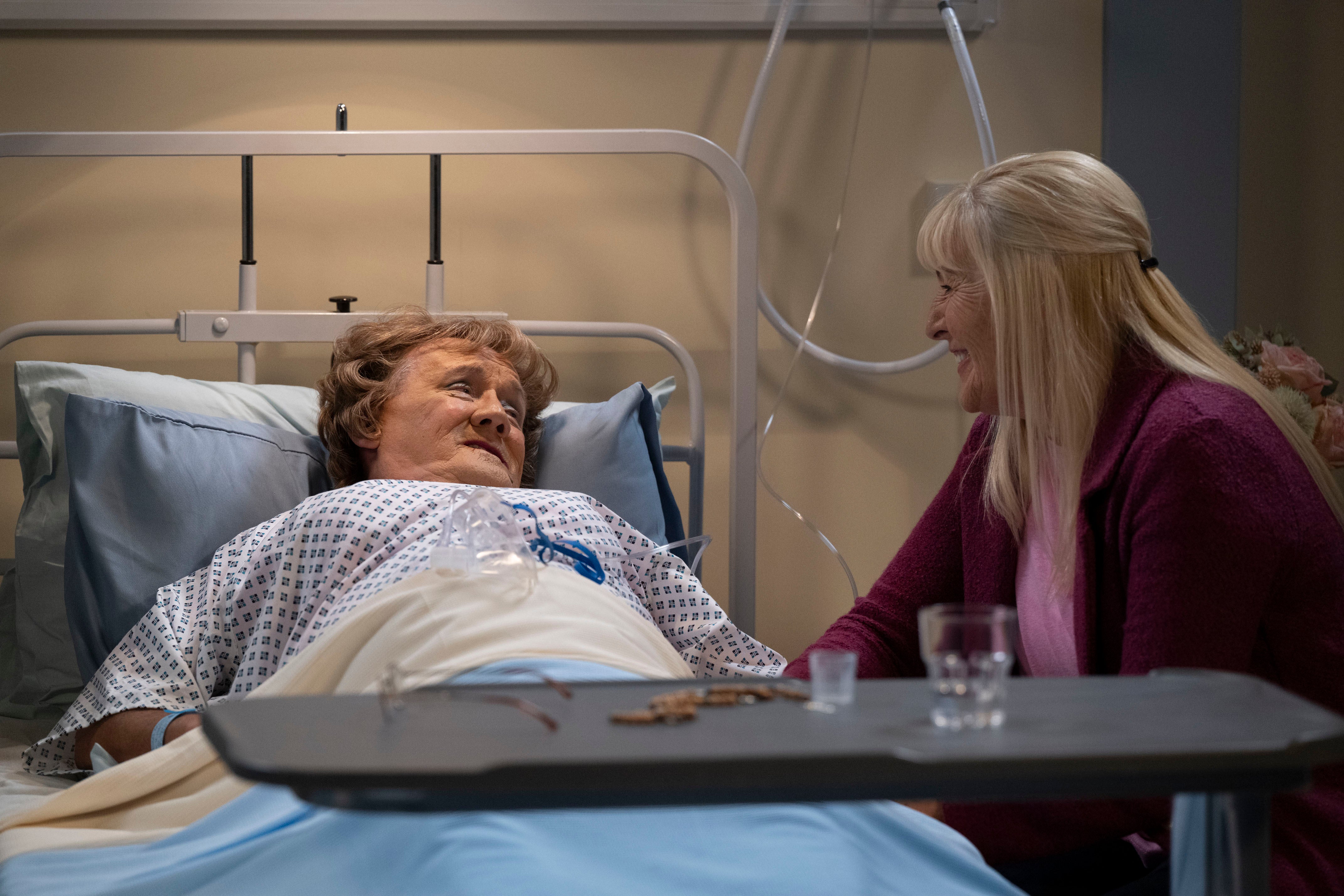What is there left to say about Mrs Brown’s Boys? Brendan O’Carroll’s rickety trad-com continues to loom over the TV landscape, until recently seeming as indestructible as a cockroach and as inevitable as a tax return. On the face of it, last year’s racism scandal – in which “a racial term was implied” during a rehearsal for a Christmas special – has made little or no difference to the show’s continuing viability. Certainly not enough of a dent to prevent a fifth season arriving on BBC One.
But why? In the light of its mystifying longevity, is it time for a reappraisal? Is it time for snooty critics to have another look at the show and maybe another look at themselves into the bargain? Well, no. Season five of Mrs Brown’s Boys is business as usual, and that business isn’t funny. In fact, the opening episode acts as a neat, almost defiant restatement of the show’s impoverished comic modus operandi. Cathy (Jennifer Gibney) is trying to launch a podcast about “interesting women”. Inevitably, O’Carroll’s Agnes blunders into recording range and ruins everything. This was always going to happen. But as ever, it’s the little details that reveal the whole picture.
The podcast is being produced by a man called Roger. Because of course it is. “Roger wants to get on top of my diction,” says Cathy at one point. No prizes for guessing where this might be going. The obviousness of feed and punchline is so unapologetic that there’s almost a zen beauty to them: it’s like watching the fractal patterns of nature in stop-motion and understanding that everything fits in its own place and makes perfect cosmic sense. Only with dick gags.
At times, it’s less like being told a series of jokes and more like watching someone attempting a practical explanation of the concept of jokes to a slow-witted child. In fact, you occasionally wonder if the whole thing is an elaborate, long-running art prank critiquing the formulaic nature of sitcom writing and whether, just to cover ourselves in the event of a triumphant reveal, critics should be hedging their bets slightly about the show’s true intentions. Is Brendan O’Carroll a genius post-modernist satirist? Has he spoofed us all? If so, hats off to the man.
But it’s probably not that. Much more likely is that, for the BBC, Mrs Brown’s Boys has fulfilled a very particular purpose. The show’s anachronistic aesthetic is not a bug but a feature. It occupies a very specific place in the culture. Mrs Brown’s Boys is many things, but “woke” it is not. The BBC likes to maintain at least one definitively anti-woke fig-leaf; something it can point to when criticised by the media rottweilers of the hard right. Top Gear, with its blokes-on-the-Bombardier bombast, fulfilled a similar role for years.
However, in this context, the Mrs Brown’s Boys racism scandal was important, because it seemed to confirm something that had always been implied about the values underpinning the show. The exact content of the “joke” has never been fully revealed but it was reportedly offensive enough to be followed by the resignation of a Black member of the production team. Prophetically, and somewhat mischievously, in 2018, YouGov devoted a whole tranche of polling to the show. No surprises really emerged: seven in 10 fans of the show were aged 45 or above and 62 per cent of fans voted Leave in the EU referendum. None of this is in and of itself an argument against the show, of course: the BBC is supposed to be a broad church and everyone who buys a TV licence can reasonably demand to have their taste represented. But the very fact that the research was commissioned confirmed Mrs Brown’s Boys’ position as a culture war bellwether.

In 2018, the BBC could still point to the numbers. Mrs Brown’s Boys was still extremely popular. But even then, signs of decline were in evidence. That year’s Christmas special drew 7.9 million viewers. Not bad, but the show’s 2013 Christmas Special had been watched by 9.4 million people. The 2024 Christmas Special drew a mere 2.2 million. There is a fascinating question to be asked about what might have happened in the interim period to make over seven million viewers decide that, no, this once-cherishable show was no longer for them. But we might simply be looking at natural attrition here.
If Mrs Brown’s Boys seemed a show out of its own time in 2013, in 2025 its continuing presence in the schedules feels like an increasingly absurd anomaly. The quality control hasn’t dipped; it’s as non-existent as it ever was. But now, hardly anyone cares. Instead, with a whimper rather than a bang, the show is simply grinding to a halt. For everyone’s sake, it’s time for a mercy killing.




